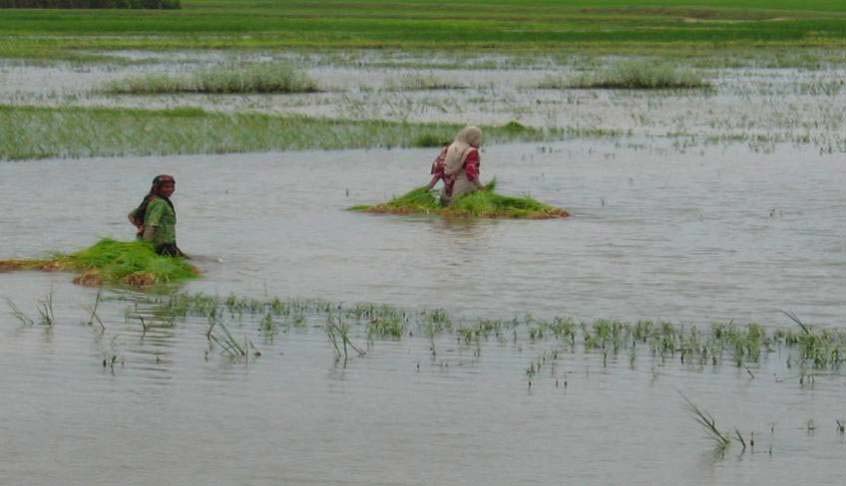/topics/governance
Governance
Financing water crises: World Bank, International Aid Agencies and Privatisation - a report by Navdanya and Research Foundation for Science, Technology & Ecology
Posted on 13 May, 2009 05:31 PMThe report by Navdanya and Research Foundation for Science, Technology & Ecology is in two parts. The first part lists the World Bank projects in three categories – loans given from 1950-1990, water restructuring projects from 1990-2005, and projects at approval stage. The second part of the report includes case studies of World Bank driven water privatization projects in Delhi, Tamil Nadu, Madhya Pradesh and Rajasthan.
Asian water supplies: Reaching the urban poor - A guide and sourcebook on urban water supplies in Asia
Posted on 12 May, 2009 05:17 PMThe report aims to provide greater understanding and awareness on expanding the delivery of water services, conservation of water, increased efficiencies, facilitation of the exchange of water sector information and experience, and improving governance. It is particularly focused on ADB’s overarching goal of poverty reduction.
Household water delivery options in urban and rural India – A working paper by Stanford Centre for International Development
Posted on 12 May, 2009 05:14 PMThis working paper by the Stanford Centre for International Development deals with household water delivery options in urban and rural India. The recent potentially far-reaching policy changes frame the paper on drinking water options for urban and rural India. Given the primacy of drinking water as a national objective, and the policy of decentralization through community ownership, private sector participation and devolution to local governments, it asks: How can India alleviate its household level drinking water deprivation, in the near-to-medium term, and in cost-effective ways?
Drinking water access in Bangalore through the framework of human rights: a PhD dissertation
Posted on 12 May, 2009 04:55 PMThis PhD dissertation by Jenny T Gronwall for Linkoping University's Tema Institute looks at issues of drinking water access in Bangalore through the framework of human rights, analyzing three interlinked dimensions: the right to water as a human right; water in terms of property rights; and water rights.
Urban water crisis in Delhi - Stakeholders responses and potential scenarios of evolution
Posted on 12 May, 2009 04:39 PMThis paper on urban water crisis in Delhi looks at stakeholders responses and potential scenarios of evolution. An inadequate piped water supply from the public utility, characterized by intermittence and unreliability, and supplemented by private uncontrolled groundwater abstraction, is a common feature of most Indian cities as well as other developing cities in the w
Annual flood misery in north Bihar - presentations by Megh Pyne Abhiyaan
Posted on 12 May, 2009 04:30 PM These three sets of presentation by Eklavya Prasad, Practitioner, Natural and Social Resource Management have been summarized below -
These three sets of presentation by Eklavya Prasad, Practitioner, Natural and Social Resource Management have been summarized below -
Bihar’s flood survival mechanisms
The Parthasarathy committee report by technical committee on watershed programmes in India (2006)
Posted on 12 May, 2009 02:47 PMThe Parthasarathy Committe was a Technical Committee on DPAP, DDP, IWDP Programmes constituted by the Department of Land Resources, Ministry of Rural Development (MoRD) in 2006 and its report has attempted an exhaustive review of the experience of the watershed programme in India.
Water policy and action plan 2020: an alternative – A report for the Planning Commission
Posted on 12 May, 2009 01:33 PMA report for the Planning Commission presents the water policy and action plan for the year 2020 for the country. The goals put forward in the policy are such as would do justice to all users of water and yet would be practical and achievable. At present it is the central and state governments that play the key role in the management of water resources. The policy proposed, on the other hand, seeks to involve all the people at the level of the local communities so that they can conserve, develop and manage the water resource at the local level itself.
Reorienting watershed development programme in India – an occasional paper
Posted on 12 May, 2009 01:17 PMThis report by FoRWARD deals with the reorientation of the watershed development programme in India. The government is apparently committing larger resources for watershed development and plans to bring most of the dryland, degraded lands under the coverage of the programme over the next 25 years or so.
Understanding processes of watershed development program in India: report of a study anchored by WASSAN and facilitated by ICEF
Posted on 12 May, 2009 12:48 PMThis process study conducted by WASSAN with the support of ICEF is an attempt to bring focus on the processes of the watershed development projects. It is an attempt to provide feedback to the policy makers, donors and field level facilitators on the processes at the field level. It is an attempt to assess, diagnose and compare process at field level in different projects.





